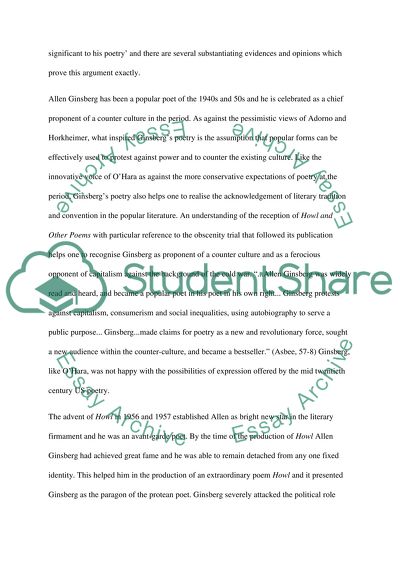Cite this document
(“Responsibility and Seriousness in Ginsbergs Poetry Book Report/Review”, n.d.)
Responsibility and Seriousness in Ginsbergs Poetry Book Report/Review. Retrieved from https://studentshare.org/literature/1505474-allen-ginsbergs-poetry
Responsibility and Seriousness in Ginsbergs Poetry Book Report/Review. Retrieved from https://studentshare.org/literature/1505474-allen-ginsbergs-poetry
(Responsibility and Seriousness in Ginsbergs Poetry Book Report/Review)
Responsibility and Seriousness in Ginsbergs Poetry Book Report/Review. https://studentshare.org/literature/1505474-allen-ginsbergs-poetry.
Responsibility and Seriousness in Ginsbergs Poetry Book Report/Review. https://studentshare.org/literature/1505474-allen-ginsbergs-poetry.
“Responsibility and Seriousness in Ginsbergs Poetry Book Report/Review”, n.d. https://studentshare.org/literature/1505474-allen-ginsbergs-poetry.


